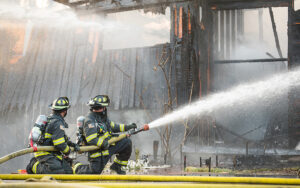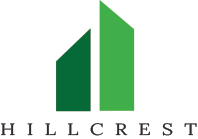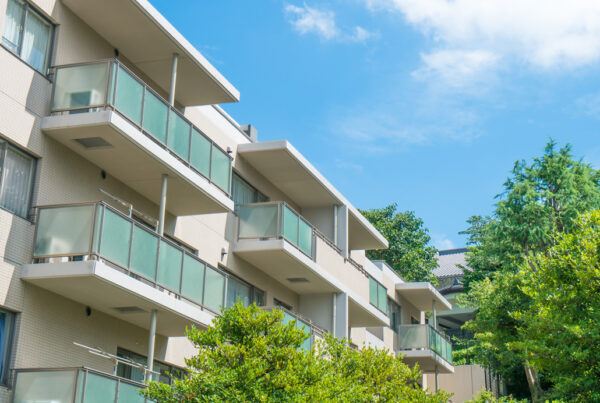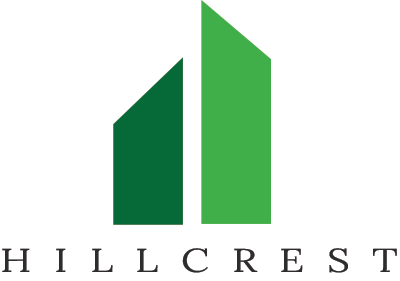Every community needs HOA insurance. Insurance serves as an association’s first line of defense in the event of property damage, liability, or a natural disaster. With insurance, an association can protect its finances and get back on the right track without losing too much. Understanding the types of insurance and what they entail is essential.
What is HOA Insurance?
Homeowners association insurance, also known as a master policy, is a type of coverage that protects a homeowners association from insurance claims. This policy covers the cost of liability expenses as well as necessary maintenance or repairs due to covered risks.
HOA Insurance vs Condo Association Insurance
Both homeowners associations and condo associations require insurance. The difference is that condo association insurance tends to be more complex due to the nature of condominiums. There are more shared spaces and elements in a condo that the association is responsible for.
Here are the types of condo association insurance:
- Bare Walls Coverage. This only covers the exterior of the condo building, including the walls and roof. The unit owner must cover anything inside the condominium. It is the least comprehensive of all condo policies.
- Walls-In Coverage. This covers the exterior of the building as well as basic interior fixtures. These include drywall, flooring, paint, built-in appliances, cabinets, and lighting. If the unit owner makes any improvements or modifications, this policy won’t cover them. A walls-in policy is the most common insurance that condo associations get.
- All-In Coverage. This covers everything a walls-in policy does, but also includes any upgrades or renovations that the unit owner makes. Due to its comprehensive nature, it’s also the most expensive type of condo association insurance.
HOA Insurance vs Home Insurance
Insurance for HOA communities differs from homeowners’ insurance. Homeowners insurance or home insurance covers the personal property and belongings of the homeowner. It applies to individual homes. On the other hand, HOA insurance covers HOA-owned properties and liability.
 HOA Insurance vs Condo Insurance
HOA Insurance vs Condo Insurance
The insurance of an HOA or condo association also differs from condo insurance. Also known as HO6 insurance, condo insurance covers the individual unit and everything inside. It also provides liability coverage for the unit owner. Meanwhile, HOA insurance covers the shared spaces and elements of the condominium as well as liability.
What Does HOA Insurance Cover?
A standard HOA insurance policy covers two things: property damage and liability.
- Property Damage. If HOA property takes damage due to a covered peril, such as a fire, the master insurance policy will cover the cost of repairs. This part of the policy offers protection to the common areas and elements that the HOA owns.
- Liability. If a resident or guest falls in a common area or facility and files a lawsuit against the HOA, the liability coverage of the master policy can take care of it. This policy should cover both the legal fees and any damages that may arise from the lawsuit.
When it comes to risks or perils, a standard master policy covers hail, fire, wind, vandalism, and theft.
What Does HOA Insurance Not Cover?
It’s important to review the details of the HOA’s policy to understand what it specifically doesn’t cover. This can change from one policy and provider to another. Generally, HOA insurance does not cover the following:
- Individual homes or units
- Personal property or belongings
- Wear and tear
- Lack of maintenance
- Certain types of water damage
- Earthquakes, landslides, and sinkholes
- Flooding
Essential Types of HOA Insurance
Apart from the master policy, an HOA should also have other policies in place. Here are the most essential types of insurance for homeowners associations.
 1. Property Coverage
1. Property Coverage
An HOA may decide to carry separate property insurance in addition to its master policy. In that case, getting property coverage makes sense. This type of policy protects shared structures and community areas that the association maintains. It also applies only to covered risks, such as fire, vandalism, or natural disasters.
2. General Liability Insurance
General liability insurance helps cover accidents or property damage that occur on HOA grounds. For instance, if someone gets hurt inside the HOA clubhouse, this insurance can cover the cost of legal defense if they file a lawsuit for negligence. If the plaintiff wins, the policy may also cover the payout.
3. D&O Insurance
Even though the HOA can be the target of a lawsuit, individual board members can also be sued. If that happens, directors & officers (D&O) insurance can protect them from being held personally liable. This policy is essential because it helps board members feel safe about volunteering their time.
4. Fidelity Bond
Fidelity bond insurance protects against losses caused by fraud, theft, or embezzlement committed by board members or staff. This policy is also known as crime insurance or employee dishonesty coverage.
5. Workers’ Compensation
Associations that employ workers need to carry workers’ compensation coverage. This also includes independent contractors hired by the association. The policy pays for job-related injuries or illnesses and protects the HOA from legal claims related to workplace incidents.
 6. Umbrella Policy
6. Umbrella Policy
An umbrella policy provides extra liability protection beyond the limits of a general liability plan. It helps shield the HOA from larger claims and lawsuits.
What are the Requirements for HOA Insurance in Illinois?
In Illinois, HOA insurance requirements vary depending on whether the association is a condominium or not. The Illinois Condominium Property Act governs condominiums, and 765 ILCS 605/12 sets forth the insurance requirements.
Under this section, condominiums in the state must have the following policies:
- Property Insurance. This must cover all common elements and units. It must provide special form coverage for all causes of loss and must cover 100% of the replacement cost of the insured property. This includes demolition costs and the increased cost of construction.
- General Liability Insurance. This must provide at least $1 million in coverage (or more, if the board decides). It must cover the association, the board, the management agent, employees, and agents.
- Fidelity Bond. A fidelity bond is required for associations with six or more units. It must cover all persons handling the association’s funds and must be equal to all funds and reserves. Additionally, HOA management companies must also carry fidelity bond coverage.
- D&O Insurance. The board must carry D&O insurance at a level it deems reasonable or as required by the governing documents. It must cover all official board actions, including defense for breach of contract, non-monetary claims, and insurance decisions.
The Illinois Common Interest Community Association Act does not specify what policies an HOA must have. That said, 765 ILCS 160/1-35 states that if an HOA has insurance, it must provide a statement of its insurance coverage to all members.
Frequently Asked Questions
How much does HOA insurance cost?
The cost of HOA insurance can depend on a number of factors. These include the type of association, its size, its amenities, and its insurance needs. In general, insurance for an HOA can cost anywhere from $100 to $1,000 per month.
What are some common exclusions to HOA insurance?
This can vary from one provider to another, but exclusions typically include earthquakes, flooding, wear and tear, and damage resulting from the association’s negligence. Earthquakes and flooding will require separate policies.
What are the benefits of HOA insurance coverage?
The chief benefit of HOA insurance is that it offers financial protection to the association and, by extension, its members. Insurance can cover property damage and liability, including legal costs and damages. Moreover, most governing documents require associations to carry insurance, so boards should ensure compliance.
Can an HOA require homeowners insurance?
Yes, an HOA can require homeowners to obtain home insurance. This also applies to condo associations. Additionally, most mortgage lenders require borrowers to carry homeowners insurance.
Do I need loss assessment coverage?
Homeowners can choose to add loss assessment coverage to their standard homeowners insurance policy. This coverage can pay for part of the loss or damage in common areas, so the homeowner doesn’t have to pay their share out of pocket.
Does HOA insurance cover individual homes?
No, an HOA’s master insurance policy does not cover individual homes. Homeowners typically need to purchase a separate policy to cover their homes and belongings.
Condo unit owners, on the other hand, should check their condo association’s policy first. If their COA’s policy is the all-in type, it should cover their units as well. That said, it’s always best to have a separate condo insurance policy for additional protection.
Do I need condo hazard insurance?
Condo hazard insurance protects against physical damage to the property as a result of fire, hail, windstorms, vandalism, and certain natural disasters.
Unit owners likely do need condo hazard insurance, but the type and amount depend on several factors. These include what the condo association’s master insurance policy covers and what state law or mortgage lenders require.
The Bottom Line
Board members should understand the ins and outs of HOA insurance, including compliance requirements and what types of coverage they should purchase. Similarly, homeowners and condo owners should make sure they have adequate policies for their own homes or units.
Hillcrest offers HOA management services to communities in Chicago. Call us today at 630-627-3303 or contact us online to request a proposal!
RELATED ARTICLES:
- Rising HOA Insurance Costs And The Impact On HOA Fees
- How To Reduce Maintenance Costs In HOA
- HOA Accounting For Board Members





